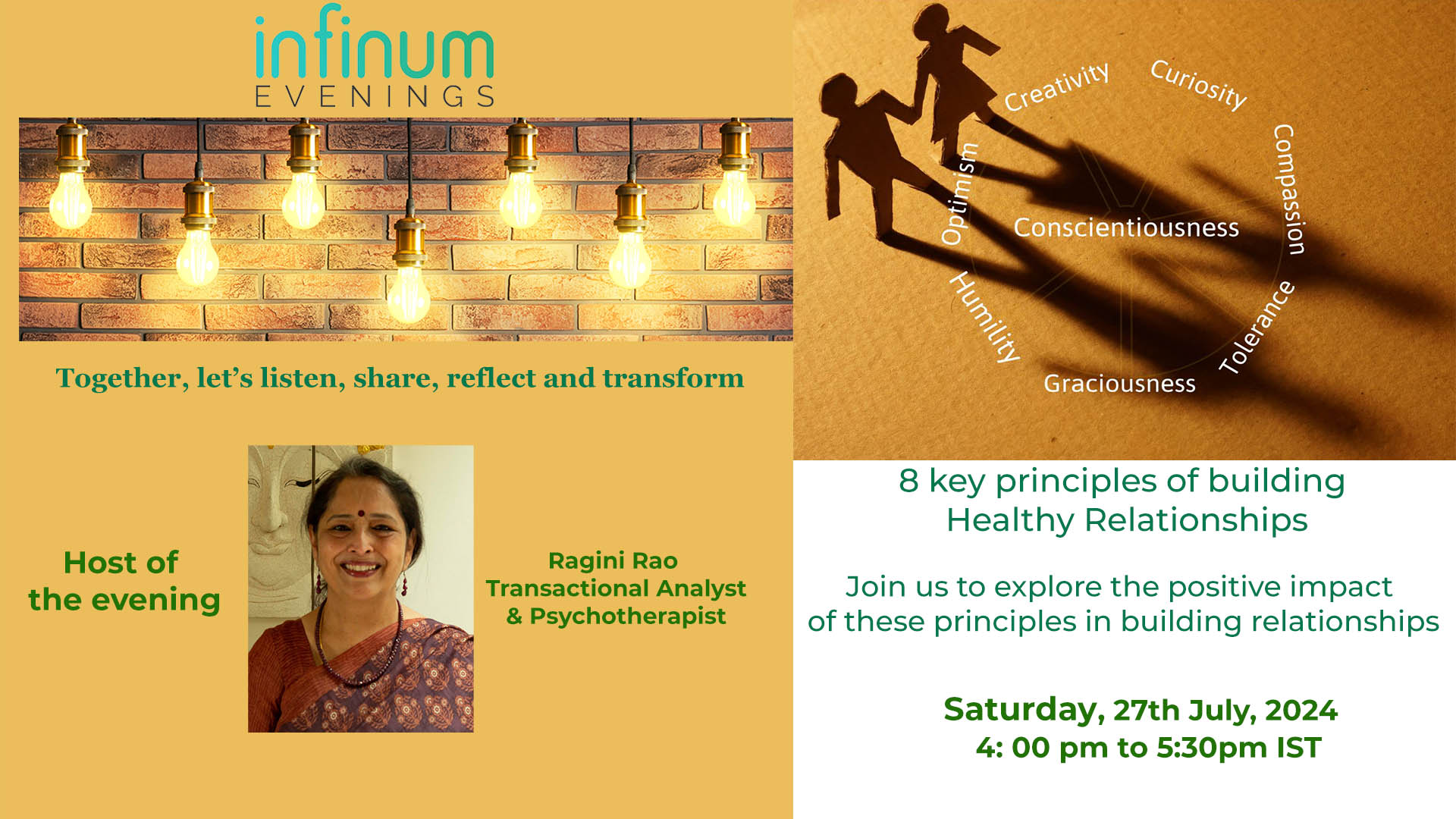Someone: “What do you want to be when you grow old?”
5-year-old me: “Vada pav seller”
10-year-old me: “Prime Minister”
15-year-old me: “Nuclear scientist”
20-year-old me: “Architect”
25-year-old me: “Teacher”
30-year-old me: “Mother”
Many “yous” within one you
Well, these are all the different versions of my aspirations since childhood.
In reality, now at 32, I am a daughter, a sister, a friend, a wife, a daughter-in-law, a mother, an employee and a designer who is passionate about good learning and education. I am sure you too are many ‘yous’. So think about this; how many versions of ‘you’ make the complete you?
Let me be frank and say that each of these me(s) is very different from the other! As a daughter- I demand and care; as a friend- I make fun of and love; as a wife- I love, admire and argue; as a daughter-in-law- I am grateful; as a mother- I dote, yet am constantly worried and as an educator- I hope to make a small difference.
So I ask myself… Who is the real me? The carefree daughter, the loving wife, the doting yet strict mother, or the passionate educator? Well… I would like to answer this by saying I am all of these… I am the Ship of Theseus. I am about all small parts which make the whole me; and also the new parts which are added with time and experience; until I am a completely different me!
Except for who you are by yourself (maybe the primary ‘you’), the other versions are dependent on the variables of relationships and your environment, both cultural and political.
Some relationships are all about giving; while others are about mutual symbiotic associations. Some are just for fun without liabilities, while others come with a load of responsibilities; and some are more about you than others.
Finding your locus of control
Here, I would want you to spare some time and take this psychological test from 1966 to find your centre of control.
Center of control or locus of control is your agency; where you lie somewhere in the spectrum between (a) believing that you have control over events in your life to (b) believing everything is a part of a larger plan and that you are just a pawn in this large scheme!
There is no right or wrong answer to this test, just a realisation that may help you help yourself.
http://www.psych.uncc.edu/pagoolka/LC.html
A high score in this test indicates an external locus of control. A low score indicates an internal locus of control.
Simply put if you believe that you have control over events in life, then you have, what psychologists refer to as, an internal locus of control. If you believe that you have no control over what happens and that external variables (eg: fate, god, luck, policies, laws) are to blame, then you have what is known as an external locus of control.
Now ask yourself, if this is a belief system how does it work for things in your life. In what situations will this belief system help you to think that you are in charge and can make things better? Alternately, in what situations will it help you to put the blame on an external agency and not live with the stress?
In what situations does your locus of control shift?
I have noticed that my locus of control changes as per my passion for the act, e.g.: I am a go-getter when it comes to my job, but on some personal fronts like losing weight, I blame my Thyroid and don’t do much for my health. My different versions demonstrate different locus of control.
Understanding one’s locus of control is important to make sense of situations. However, remember that your locus of control can influence not only how you respond to the events that happen in your life, but also your motivation to take action. If you believe that you hold the keys to your fate, you are more likely to take action to change your situation when needed.
If I believe that I can overcome the thyroid problem and diligently work towards my fitness I will surely see positive results.
If on the other hand, you believe that the outcome is out of your hands, you may be less likely to work towards change. In short, your locus of control can have a major impact on your life, from how you cope with stress and unpleasant situations to your motivation to take charge of your life.
Understanding when to take control or let go
In many cases, having an internal locus of control can be a good thing. It means that you believe that your actions impact and influence your life.
If you tend to have more of an external locus of control, you might find it helpful to start actively trying to change how you view situations and events. Rather than viewing yourself as simply a passive bystander who is caught up in the flow of life, think about actions you can take that will have an impact on the outcome.
On the other hand, don’t blame yourself for everything and take responsibility for all failures. Some things are truly not in your control. But you can control how you feel about letting them go.
Ask yourself if manipulating your locus of control can help you take charge and cope. If yes, then, identify those stressful situations and take charge. Ask yourself how you could do this differently and if it is worth taking the efforts in your current situation? There is truly no formula as each one of us is different in varied circumstances.
You have to be your own master. Learn both – how to take charge and how to let go.
Please do leave your comments at the bottom and do share with others if you like this article.

















Nice article and explained simply & effectively by Ms.Sonam!Thanks!